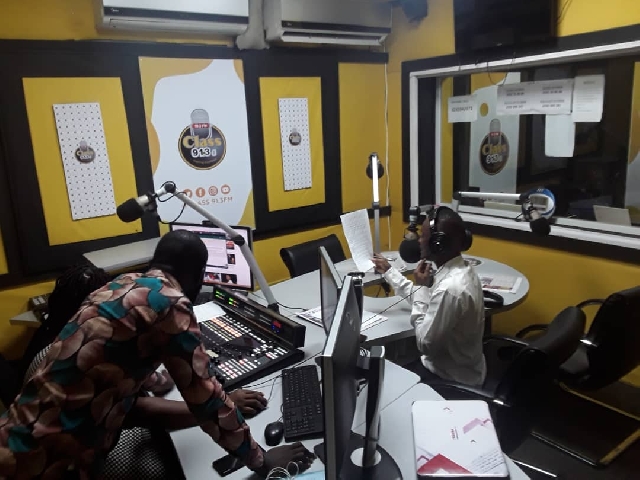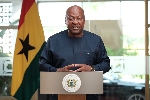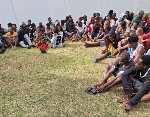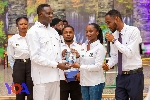World Radio Day: Promote free speech – UNESCO to gov’t
 Class FM studio
Class FM studio
UNESCO is calling on the government to prioritise the promotion of freedom of expression, access to information and gender equality to improve networking and international cooperation between broadcasters.
The call comes at the period UNESCO and non-governmental organisation Farm Radio International are gearing up for World Radio Day Forum scheduled for Thursday, 13 February 2020 in Accra.
World Radio Day celebrates radio and how it shapes lives and public opinion.
It is to create awareness among the public and the media about the relevance of radio, whip up the interest of decision-makers to ease access to information through radio to enhance networking and international cooperation among broadcasters.
Speaking to Class News’ Jerry Akornor ahead of World Radio Day Forum in Accra, UNESCO Ghana Office National Programme Officer Abdul Hamid Yakubu said: "The government should create an enabling environment for freedom of expression to make sure we live in a democratic space.
“At the top is the freedom of expression and that's the role of government, laws must be specifically made to empower people to be able to enjoy freedom of expression, access to information and gender equality”.
This year’s World Radio Day Forum would focus on diversity in the use of radio, advocate pluralism in radio (a mix of public private and community broadcasters), encourage presentation in the newsroom with teams comprised of diverse society groups and promote diversity of editorial content and programme types reflecting a variety of audiences.
The Country Director of Farm Radio International, Benjamin Fiafor, said the government should scale up the granting of licences to communities to expand the number of community radio stations in the country.
“How can the government ensure that when we talk about pluralism, Ghana has more community radio stations?" he pondered.
He said: “Radio is a powerful medium for celebrating humanity and constitutes a platform for democratic discourse. At the global level, radio remains the most widely consumed medium. This unique ability to reach out to the widest audience means radio can shape a society’s experience of diversity, stand as an arena for all voices to speak out, be represented and heard. Radio stations should serve diverse communities, offering a wide variety of programmes, viewpoints, content, and reflect the diversity of audiences in their organisations and operations.”
Source: classfmonline.com
Trending News

Ghana is “rising again,” President Mahama declares in 2026 New Year message
21:45
V/R: 15 arrested after sporadic shooting at Ho central mosque, 7 hospitalised
12:19
A/R: Police arrest suspect for conspiring to commit robbery at Manso Abrense
21:27
GoldBod dismisses claim of losses as “imaginary”
12:00
2024 Adabraka ₵7.5m daylight jewellery shop robbery: Police arrest suspect
19:29
141 arrested in major cybercrime crackdown targeting MoMo fraud, online scams
10:36
Tema police foil robbery attack at Afienya-Mataheko
00:04
Awutu Senya East MP, MCE engage security agencies to review security situation
10:07
“You Are a Destiny Changer” — Beneficiary’s story moves audience at Dr Adutwum thanksgiving event
23:16
Ghana Medical Trust Fund engages Ghana Health Service, HeFRA on strengthening health system reforms
09:50




